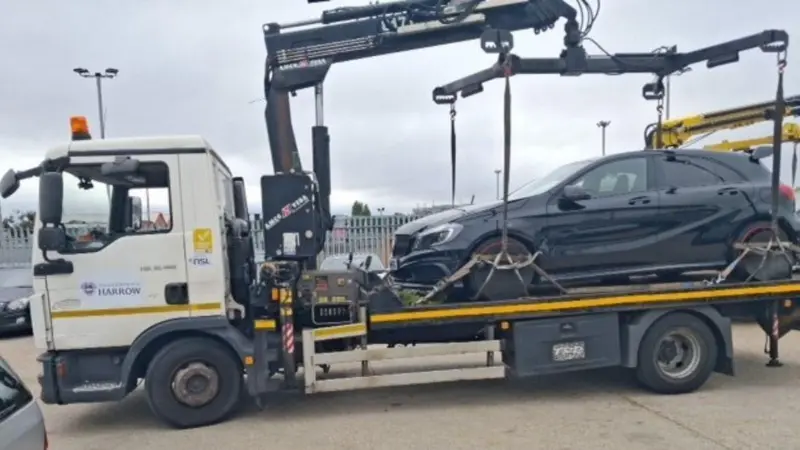CSL Group Explains How Real-Time AI and OCPP Strengthen EV Charge Point Security


As the global transition to electric vehicles (EVs) gathers pace, the pressure to deploy secure, intelligent, and scalable charging infrastructure has never been greater. Key to achieving this ambition is the widespread adoption of open communication standards—namely, the Open Charge Point Protocol (OCPP)—and the integration of real-time artificial intelligence (AI). Together, these technologies are shaping the next generation of EV charging systems by delivering greater interoperability, heightened security, and data-driven optimisation.
The OCPP Standard: A Foundation for Interoperable EV Charging
OCPP has firmly established itself as the global industry standard for communication between EV charge points and Charging Station Management Systems (CSMS). Developed and maintained by the Open Charge Alliance (OCA), OCPP is vendor-neutral, which means it eliminates the risk of vendor lock-in and offers long-term flexibility to operators and manufacturers alike.
The protocol enables seamless communication and control of diverse charging hardware through a unified backend system. This interoperability is essential as the EV ecosystem expands across public, private, and commercial domains.
OCPP’s importance was recently reinforced when it was formalised as IEC 63584, providing a globally recognised regulatory framework that ensures standardisation, reliability, and security.
OCPP and ISO 15118: Enabling Advanced Charging Capabilities
OCPP doesn’t work in isolation. It is frequently paired with ISO 15118, a protocol that governs the communication between electric vehicles and charging stations. Together, these standards enable advanced features like Plug & Charge, which allows drivers to simply plug in their vehicle and automatically initiate a charging session—without needing a card or app.
They also lay the groundwork for Vehicle-to-Grid (V2G) and Vehicle-to-Everything (V2X) interactions, in which EVs can act as decentralised energy resources, feeding energy back into the grid or other devices when needed.
What’s New in OCPP 2.1?
Released in January 2025, OCPP 2.1 builds on IEC 63584 with a suite of new features designed to support intelligent, decentralised energy ecosystems. Highlights include:
-
DER (Distributed Energy Resources) Integration: Enables bidirectional charging and grid balancing.
-
Battery Swapping Support: Facilitates seamless use of battery-swapping stations.
-
Advanced Payment Methods: Includes support for prepaid cards, QR-based payments, and dynamic local pricing.
-
Offline Cost Calculation: Allows charge points to calculate pricing locally, ensuring continuity when internet access is disrupted.
-
Backward Compatibility: Works with OCPP 2.0.1-based CSMS for smooth transition and deployment.
These advancements support use cases like dynamic energy management, flexible tariff models, and remote diagnostics—critical in high-density urban settings and rural locations alike.
Combining AI and OCPP: A Game-Changer for Cybersecurity
While OCPP lays the groundwork for flexible and scalable infrastructure, artificial intelligence provides the intelligence needed to make it proactive, adaptive, and secure. Integrating AI with OCPP unlocks several transformative benefits:
-
Intrusion Detection: Real-time anomaly detection alerts operators to suspicious activity.
-
Predictive Maintenance: AI learns behavioural patterns of chargers and can forecast equipment failure before it happens.
-
Adaptive Load Balancing: Charging sessions are optimised based on live energy prices and grid demand.
-
Fraud Detection: AI algorithms can identify tampering or unauthorised use based on historical data trends.
AI models can be deployed locally at the edge—within the charge point—or centrally within a CSMS, ensuring flexibility in threat response and operational efficiency.
How CSL Group is Supporting Secure OCPP Deployments
CSL Group is a recognised leader in critical connectivity and infrastructure security. With extensive experience in the energy, utility, and transport sectors, CSL plays a pivotal role in enabling secure and reliable communication systems for EV charge point operators (CPOs) and OEMs.
Here’s how CSL is supporting the future of EV charging infrastructure:
1. Secure OCPP Integration Support
CSL offers end-to-end implementation support for OCPP-compliant networks. This includes:
-
Encrypted communications
-
Certificate-based authentication
-
Network segmentation and threat isolation
-
OCPP and ISO 15118 interoperability
By providing expert guidance on secure configuration and best practices, CSL ensures clients meet both performance expectations and regulatory obligations.
2. Resilient Connectivity Infrastructure
Robust connectivity is a cornerstone of modern EV infrastructure. CSL's solutions include:
-
Multi-network SIMs for seamless switching between carriers
-
Patented rSIM technology for fallback and remote management
-
Highly secure routers and edge devices
-
Satellite and broadband redundancy options
These technologies guarantee high availability and low-latency OCPP communication—even in remote or high-demand environments.
3. Customised Charge Point Security Solutions
Security is never one-size-fits-all. CSL designs bespoke infrastructure based on the unique operational and threat environment of each deployment. Whether safeguarding a fleet depot or enabling public rapid chargers, CSL ensures total system visibility and resilience.
4. Future-Ready Innovation
As cybersecurity threats evolve, so too must our defences. CSL invests in emerging standards and AI-based threat modelling to stay ahead of the curve. Their collaboration with clients includes R&D support, protocol testing, and strategic planning for next-gen solutions.
The Road Ahead: OCPP and AI Shaping a Safer EV Future
The convergence of OCPP 2.1, ISO 15118, and AI marks a significant leap forward in the digital transformation of transport. Together, they create a foundation for intelligent, adaptive, and future-proof EV charging networks.
As public and private investment in EV infrastructure accelerates across the UK and beyond, stakeholders need trusted partners to navigate the technical and security challenges of large-scale rollouts. With CSL Group’s expertise, CPOs gain the tools and confidence to build infrastructure that’s not only functional but also secure, scalable, and innovative.
Final Thoughts
The future of mobility is electric—but the future of electric must be secure. By integrating real-time AI with OCPP-based infrastructure, organisations can mitigate risks, increase reliability, and deliver superior user experiences.
With trusted partners like CSL Group leading the charge, the UK is well-positioned to build a resilient and secure EV ecosystem that can serve generations to come.
Posted on 4 July 2025







